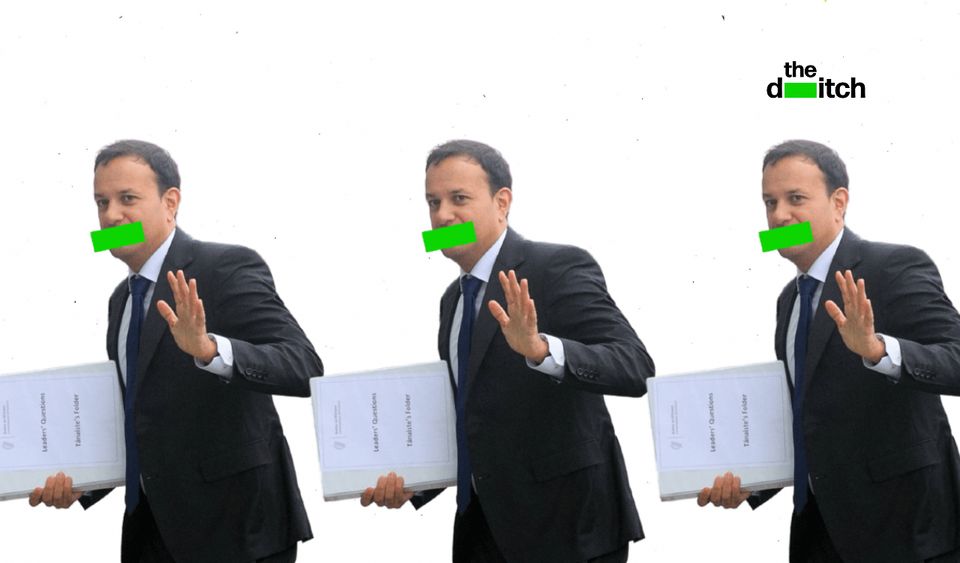SIPO is investigating electronic payments to Leo Varadkar and his explanation as to why he hasn’t publicly declared them in his annual declaration of donations. The ethics commission is also asking the taoiseach if people he claimed to have made donations on behalf of others have registered with SIPO, as is legally required.
These payments exceed €600 – the maximum sum TDs can receive from individual donors without publicly declaring. The Ditch reported last week that SIPO has asked the taoiseach why he didn’t declare a 2018 donation from Rossa Fanning, with Varadkar claiming the attorney-general had been reimbursed for at least part of the payment – which would bring it below the publicly declarable threshold.
It has now emerged SIPO is enquiring whether Varadkar is aware if the people he claimed to have made donations and were later reimbursed by others – legally known as intermediaries – have adhered to legal requirements for such donations. “Can you further confirm that the obligations on an intermediary… have been followed in each case?” wrote SIPO to Varadkar this May, asking him to “provide a detailed explanation”.
Failure to register as an intermediary and make the necessary returns to SIPO is a criminal offence under the Electoral Act 1997.
'The relevant individual referred to above would be an intermediary'
SIPO in early May this year wrote to Leo Varadkar to investigate his decision to not publicly declare a number of 2022 donations that were more than €600. All donations surpassing this figure must be declared publicly on a donation statement.
Referring to previous correspondence from Varadkar this April, SIPO told the taoiseach it required “additional clarification in order to ensure compliance with the provisions of the Electoral Act 1997”.
SIPO had questions about donations made to Varadkar by electronic funds transfer (EFT), which he didn’t publicly declare.
“You stated that all EFT payments on your political donations account in excess of €600 are in respect of a group of individuals for a table at a fundraising event,” wrote the commission to Varadkar.
Having asked for further detail on these payments, Varadkar had responded the previous month, but SIPO still wasn’t fully satisfied he had “complied with (his) statutory obligations”.
SIPO asked the taoiseach to “confirm in the case of each EFT payment… that the amount lodged by the relevant individual represents donations made by a number of individuals at a table at a fundraising event to the relevant individual who then lodges the aggregate amount”.
SIPO told Varadkar that if these donations were from multiple people, as the taoiseach had claimed, then the ultimate donor should have been registered as an intermediary and made the appropriate returns.
“If this is the case, the relevant individual referred to above would be an intermediary within the meaning of the Electoral Act 1997. Can you further confirm that the obligations on an intermediary… have been followed in each case? Please provide a detailed explanation of the process followed on each such occasion,” wrote SIPO.
If, as Varadkar has told SIPO, that individuals collected more than €100 from third parties before making a single donation, these individuals would be required by law to register with SIPO, open a separate bank account for donations and submit returns.
Varadkar has until 30 August to respond to SIPO’s queries.
A spokesperson for Varadkar said, “The taoiseach is engaging with SIPO and will provide a full reply to them in time for the deadline.”


